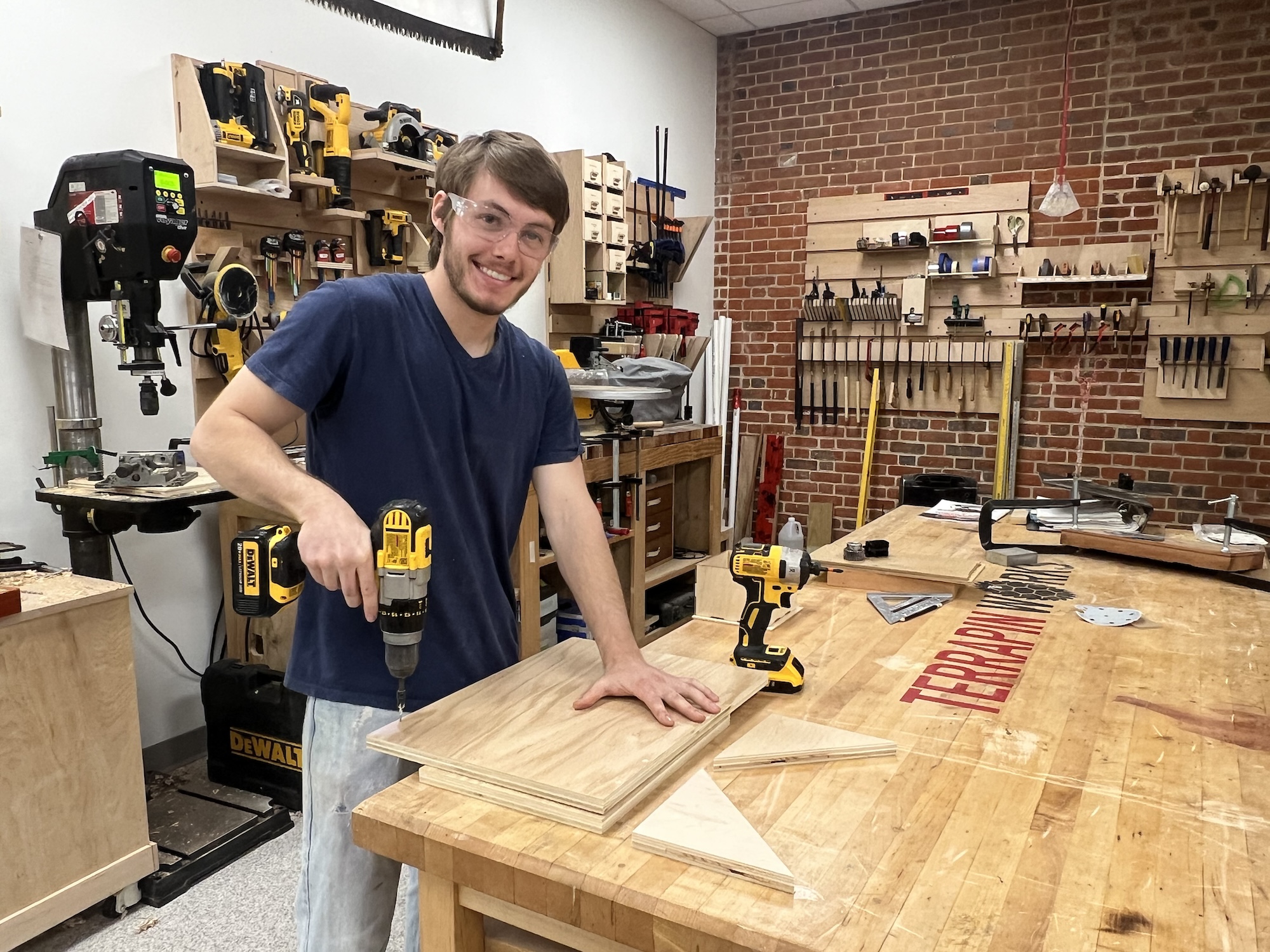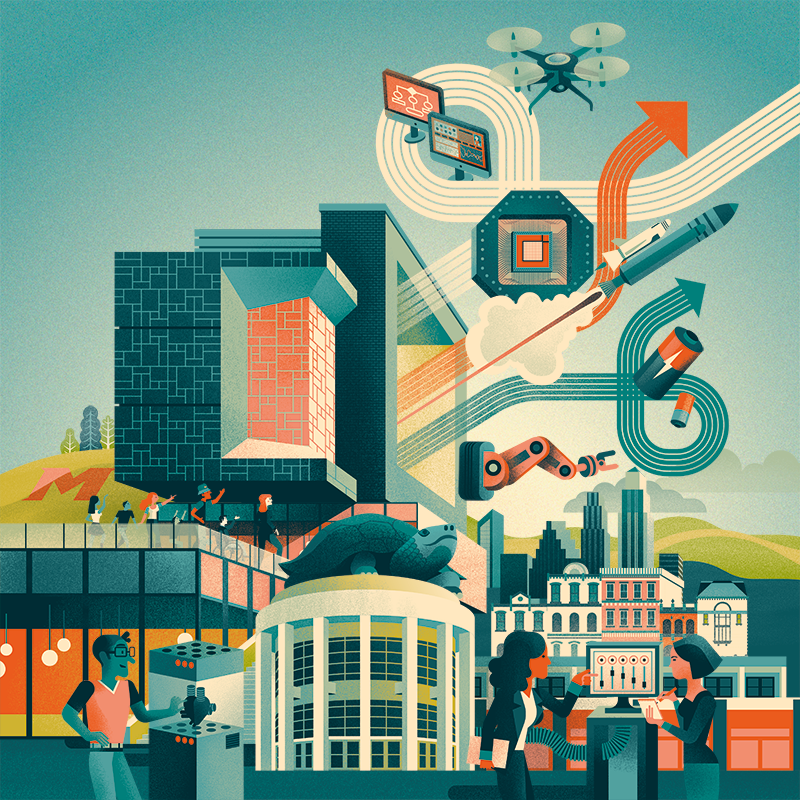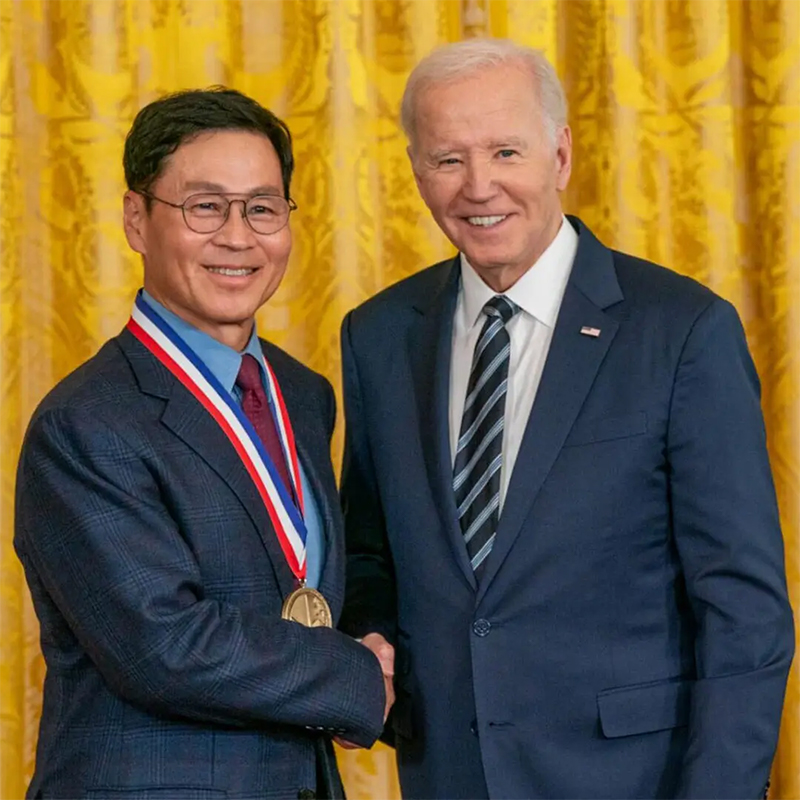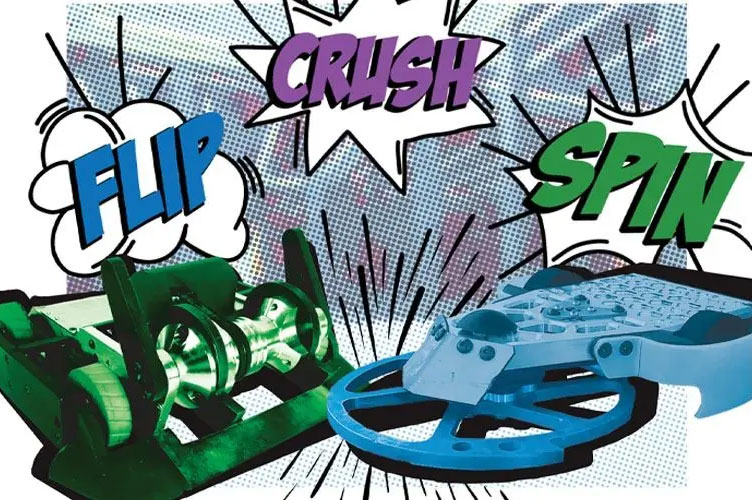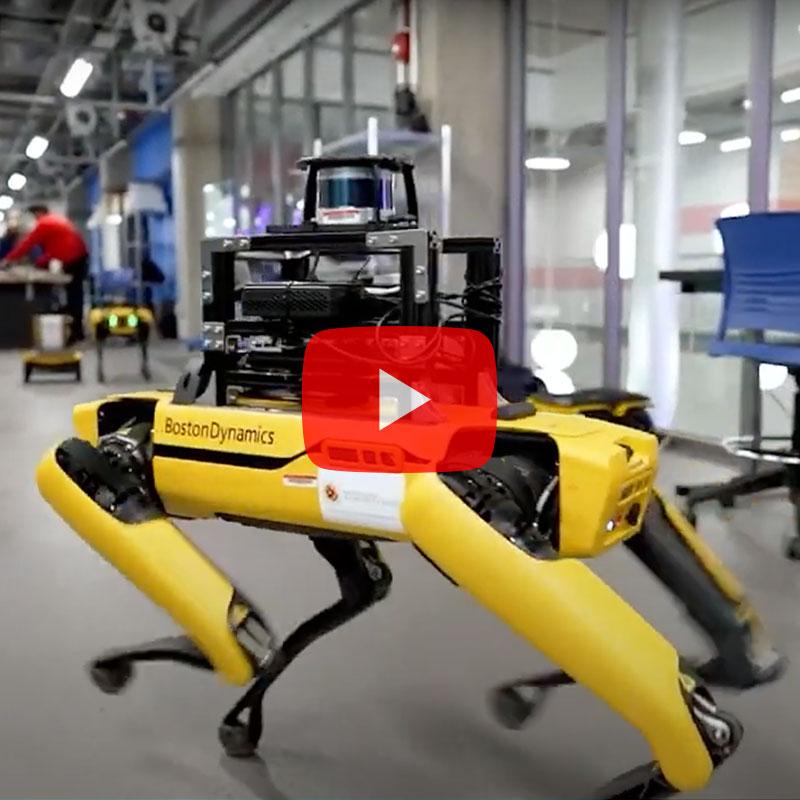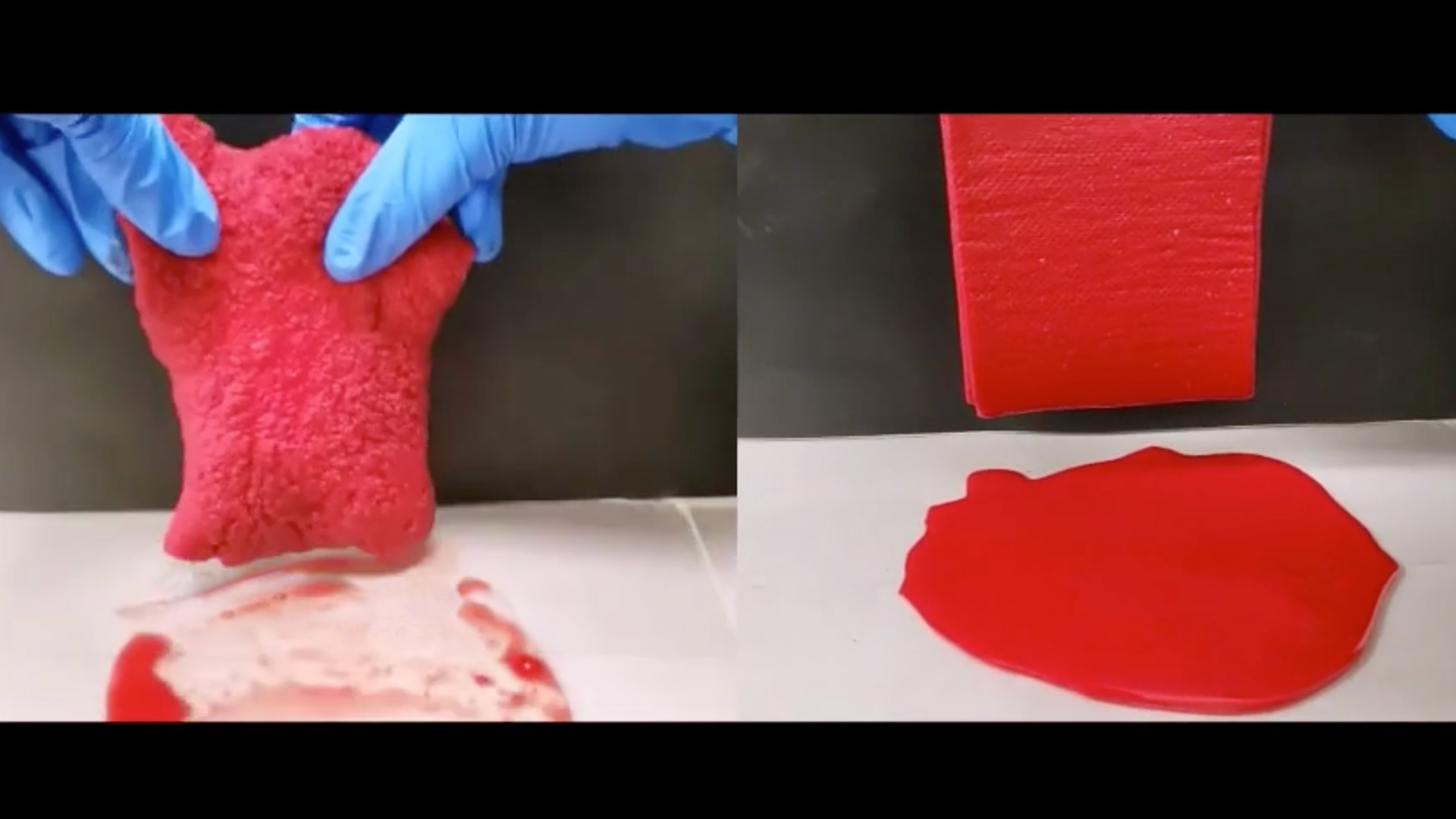News Story
Our student staff revamps the DCC Makerspace!
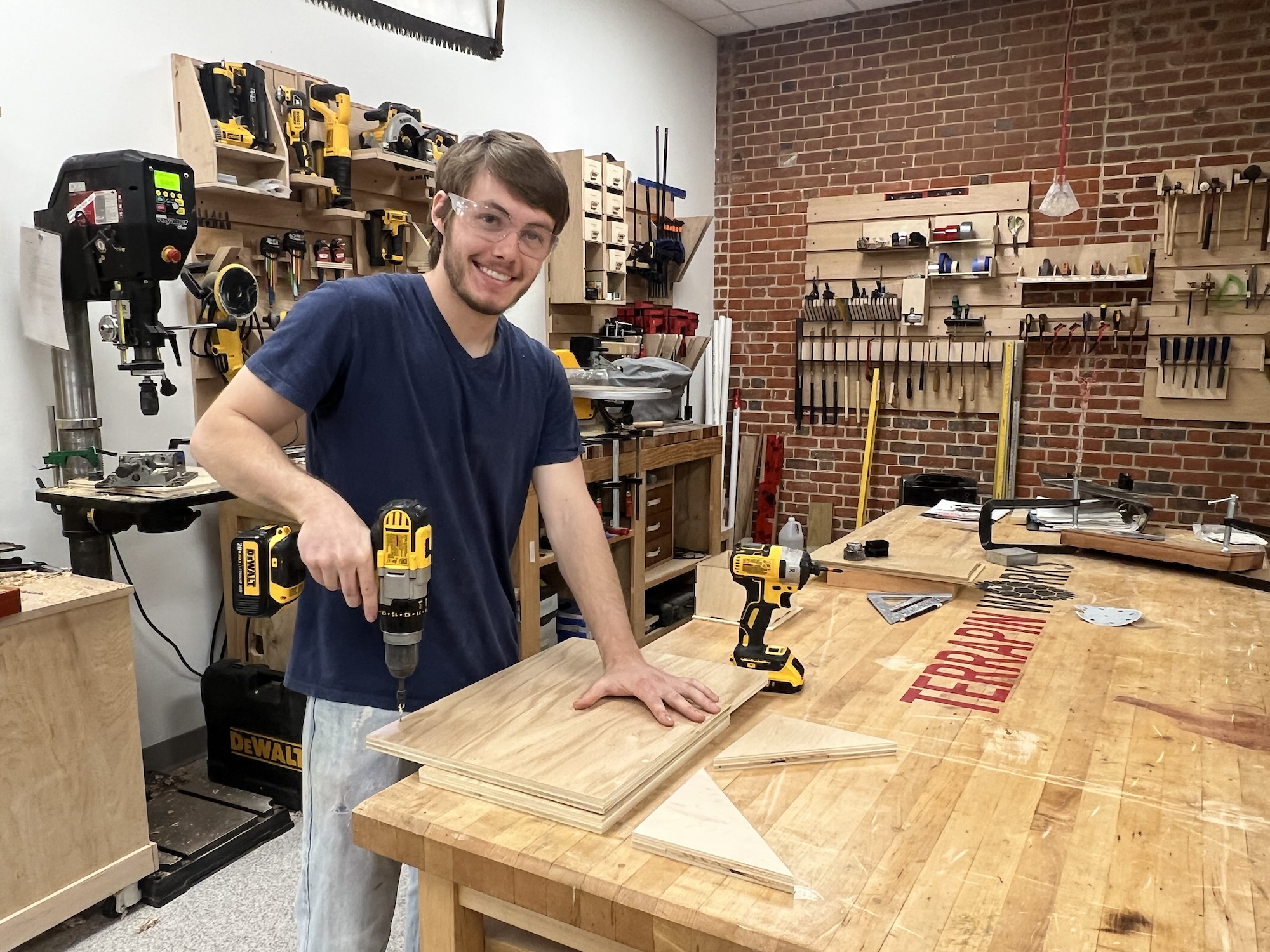
With goggles on and a drill in hand, Ray is all set to dive into his project and bring his creative vision to life.
When DCC student Ray Guzzone stepped into the program’s Makerspace in Prince Frederick Hall, he saw more than just a room filled with tools and materials—he saw potential. The space, while functional, lacked the organization and flexibility needed to fully support the creativity of its users. For Guzzone, a sophomore mechanical engineering major with a passion for woodworking, this was an opportunity to leave his mark. With the support of DCC staff, he brainstormed a capstone project to transform the Makerspace into a streamlined, adaptable environment that better supports the innovative spirit of the program’s students working at the intersection of art and technology. What began as a modest idea for a workbench to house a 3D printer evolved into a comprehensive redesign of the space, showcasing Guzzone’s creativity, technical skills, and dedication to problem-solving.
The project originated last year when Professor Damien Pfister, DCC’s faculty director, approached Guzzone about building a custom workbench for the Makerspace for his capstone project. As discussions progressed, associate director Dr. Jessica Lu encouraged Guzzone to expand the scope of the project, and with additional funding, it grew into a full-scale renovation. Guzzone embraced the challenge, designing and building new furniture and storage solutions to improve the functionality and aesthetics of the space.
“I wanted to create something that was not only functional but also adaptable,” Guzzone explained. “The Makerspace is used for so many different activities—from sewing to 3D printing to soldering—so it needed to be versatile and organized.”
Guzzone’s design included four modular units tailored for specific tasks: 3D printing, sewing and textile crafts, paper crafts and cutting, and fabrication. He also built two six-foot cabinets with pocket sliding doors and implemented an innovative French cleat system for wall-mounted tool storage. This system allows tools and materials—like clamps, hammers, and canvases—to be easily rearranged based on users’ needs. “The French cleat system gives students flexibility,” Guzzone said. “It’s a simple solution that makes a big difference.”
The project plugs into the campus’ broader Makerspace Initiative, led by Rick Blanton, which includes bringing such spaces up to campus-wide safety and training standards. “Our renovation means that we can finally honor what a ‘makerspace’ is—not just in design, but also in terms of standards and best practices of the existing maker community on campus,” said Lu.
Guzzone’s passion for woodworking began about eight years ago in his family’s garage, where he started making jewelry with his father’s tools. Over time, he expanded his skills, selling his creations on Etsy and to his church community. At UMD, he found opportunities to refine those skills at the Keystone Woodshop—part of Terrapin Works—where he now works as a student manager.
“Projects like this give the Terrapin Works student staff opportunities to practice project management skills and leverage their technical expertise and creativity,” said Woodshop manager Ted Baker. “It is awesome to see what our students are capable of doing. Through this type of collaboration, students gain confidence and feel proud to create significant and lasting changes to their campus.”
Through the Woodshop, Guzzone designed and built everything in-house with help from the Terrapin Works team and some friends. The DCC Makerspace renovation required approximately two weeks of design work, plus over 230 hours of construction and installation—a significant undertaking that tested both his technical abilities and time management skills.
Reflecting on the experience, Guzzone emphasized how hands-on learning opportunities have made his experience at UMD unique. “Terrapin Works is such an incredible resource,” he said. “Having access to tools like these makes such a difference for students, especially in engineering. They often come in for coursework, but it’s also fun to see some use the resource to make gifts for their girlfriends or family members.”
Although Guzzone doesn’t plan to pursue woodworking as a career, he sees it as a hobby that complements his engineering work. Currently interning with the Department of Defense at Indian Head, he has even found ways to apply his woodworking knowledge in professional settings. “Hobbies like this give you balance,” he said. “But they also teach you skills that can be surprisingly useful in your career.”
As the DCC Makerspace debuts its new look, it demonstrates the student innovation and interdisciplinary learning encouraged by the program. The project not only enhances the space’s functionality but also embodies the DCC program’s mission of exploring the intersection of creativity and technology. “I see myself as both an engineer and an artist,” Guzzone said. “I hope this inspires other students because it shows what you can accomplish when you combine engineering with creativity.”
Design Cultures & Creativity (DCC) is a dynamic, social, and rigorous living-learning Honors College program at the vibrant intersections of arts and technology. DCC has carved out a special place for driven, creative, and artistic-minded students to simultaneously enjoy the access and comforts of a small, liberal arts college experience and the resources and privileges of a large research campus. Learn more about the DCC program at dcc.umd.edu.
Click here to view the original article posted on the University of Maryland Honors College website.
Published April 8, 2025
